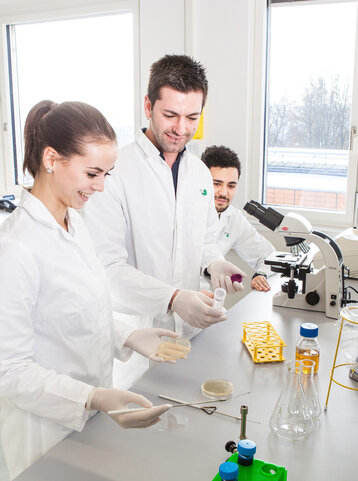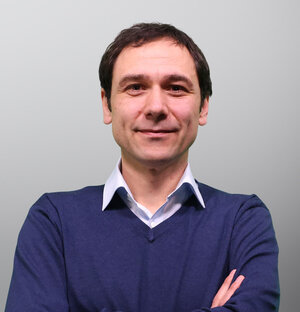Shape the future of medicine
This degree programme combines the exciting topics of medical technology and molecular biology. We ask ourselves questions such as: What happens in the organism? How does the body work? How do physiological processes take place and how do diseases develop? Since the corona pandemic, everyone has had to deal with PCR or antigen tests – but you'll learn how they work and for which diseases they and many others are used. The biomedical sciences are a rapidly developing field. We have an overview of these and prepare you for the future!
Programme content and structure
Modern biomedicine makes an important contribution to overcoming the major challenges of the 21st century. That's why you'll be studying current topics on our degree programme - across disciplines. In addition to traditional natural sciences and molecular biology, you'll also be taught application-related content from medicine, laboratory diagnostics and medical technology. The analysis of large amounts of data is becoming increasingly relevant, and we also train you in this area. This will give you a head start in many different professional fields. Because new topics and techniques are constantly taking centre stage both in the job market and in research, we are constantly optimising our course content to keep you up to date!
Entry requirements
What's included
Your career prospects
Occupational sectors
Business and industry, research and development
- Basic research, applied research
- Quality management / quality assurance
- Product development / product management
- Laboratory facilities, research and development
Basic research, doctorate
- Development and implementation of scientific and general evaluations
Clinics and medical care centers
- Collaboration in diagnostics
- Quality management, hygiene
- Medical technology, laboratory technology, environmental protection, environmental medicine
- Cardiotechnology (after appropriate specialisation)
- Collaboration in the design and implementation of clinical studies
Authorities with a focus on safety, environment and hygiene
- Quality management
- Hygiene management
- Infection control
Events
Unfortunately, there are currently no events planned that we can display here. We have compiled an overview of all planned events in the event calendar.


